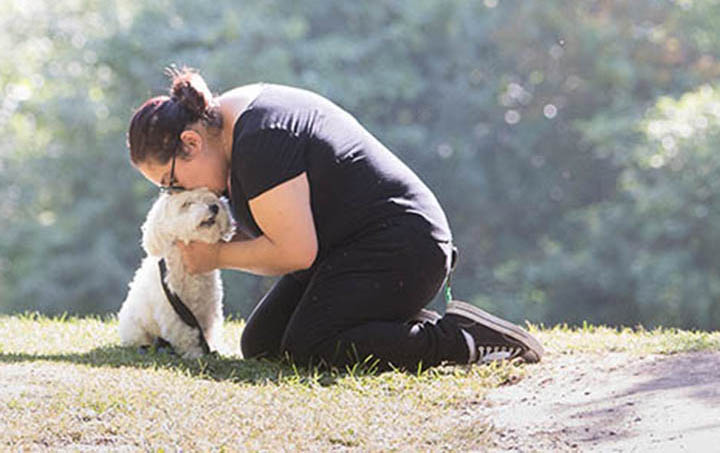THE CAUSE

Too many young people are struggling
As many as 1 in 5 children and youth in Ontario will experience some form of mental health problem. 5 out of 6 of those will not receive the treatment they need. That’s because young people living in psychological pain are reluctant to speak up, and 63% cite stigma as the reason. Then, there’s the sheer complexity of the mental health-care system, with well over 1,000 treatment providers, centres and programs for mental illness in Ontario.
This free service pairs youth aged 13 to 26 who have mental health and/or addictions challenges, and their families, with clinically trained navigators who connect them with the services they urgently need. FNP serves families in the Greater Toronto Area.
About the Family Navigation Project
Since 2013 and throughout this pandemic, the Sunnybrook’s Family Navigation Project, part of the Hurvitz Brain Sciences Program, has been there to guide families to the right treatments and services for young people with mental illness and addiction.
Team members partner with youth, 13 to 26 years old, and their families to help them navigate the mental health system and related services. This way, families connect to appropriate and credible assessment and treatment resources to get the assistance they need when they need it. Learn more.
Funded entirely by donations
Your support for RBC Race for the Kids is critical. The Family Navigation Project at Sunnybrook is funded by generous supporters like you. Your fundraising efforts will have a life-changing impact on youth suffering with mental illness and addiction. By volunteering to collect donations through RBC Race for the Kids, you’re joining a community working together to help youth reach their potential.
Paige's story
Sweaty palms, butterflies in her stomach, breathing fast - too fast. A nine-year-old Paige Chong-King sits paralyzed in her grade four classroom overcome by a full-blown anxiety attack.
Now in her mid-twenties, Paige looks back at that time of her life as a turning point. "I grew up knowing that I was different," she says. "It wasn't until my grade four teacher recommended I get tested for a learning disability that I was diagnosed with non-verbal learning disorder (NLD). And a lot of people with NLD suffer from anxiety."
Paige began seeing a therapist who introduced her to valuable coping skills that would help her manage her anxiety over the next few years. But challenges in high school sent her into a "downward spiral" she says, which continued into college and included substance abuse.

"As I got older, the coping techniques stopped working. I suffered from bouts of depression and experienced suicidal thoughts," says Paige. "I got to the point where I basically gave up. Because I was sick and tired of not being OK. I haven't been OK for my whole life."
Finally, a referral to a psychiatrist gave Paige a more accurate and thorough diagnosis of bipolar disorder, borderline personality disorder and post-traumatic stress disorder. "The psychiatrist told me that I should have been diagnosed with these conditions when I was nine," says Paige. "In some ways it was a relief to finally have a proper diagnosis. But then I realized I would have to take meds for the rest of my life to fully function. It's been hard work since I was diagnosed three years ago, but I'm getting there."
The Family Navigation Project (FNP) at Sunnybrook has played a major role in Paige's journey to wellness. "When I reached out to FNP and met my navigator Michelle, she connected me with a substance abuse counsellor," explains Paige. "She's helped me a lot. The coping mechanisms I learned as a kid are now starting to work again."
In March 2020, Paige reached out to Michelle again to give an update on her progress and to let her know that the trauma therapist she had been connected with wasn't the best fit. Michelle quickly introduced her to a new therapist, an example of FNP's philosophy of "getting in the boat" with their clients.
"Once we are in the boat with youth and families, we will remain there - by their side throughout the care journey," says Sugy Kodeeswaran, executive director of FNP.
Today, Paige is grateful for the progress she's made and the support she's received from FNP to get there. "If not for FNP, I would still be burying things. Those things would have built up and eventually collapsed," says Paige, who is looking ahead to a future brimming with plans, including the launch of her very own business. "I'm so much more motivated than I was a year ago. My life has changed for the better."
